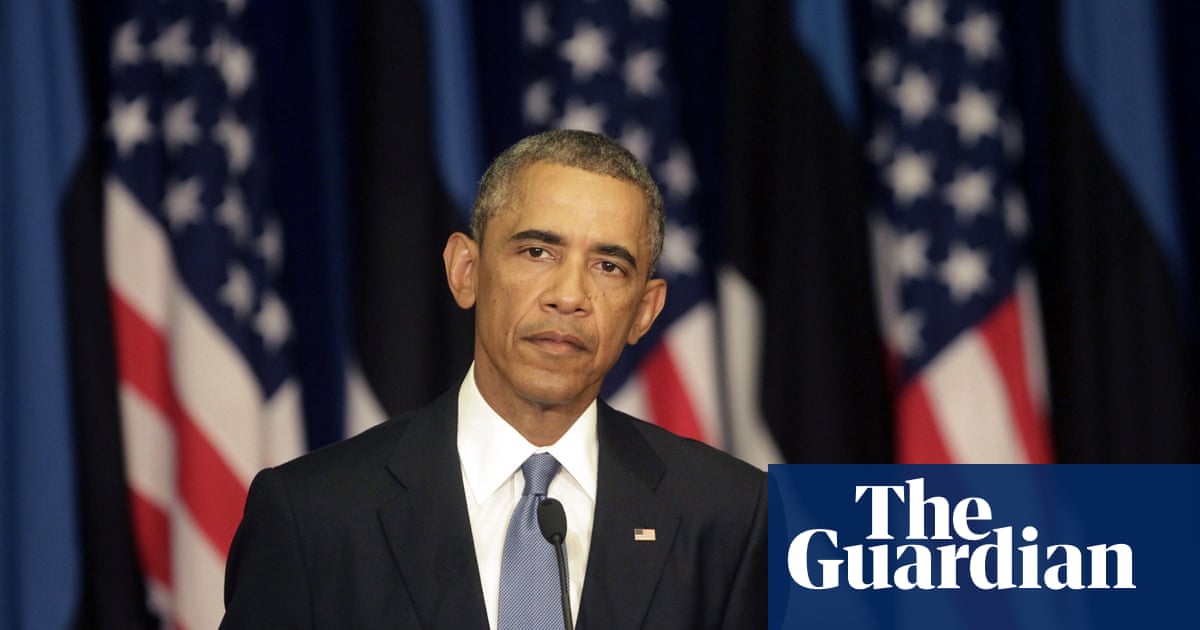
Russia has delivered a sharp response to the Biden administration’s sanctions, blacklisting senior officials and targeting the US diplomatic mission, including the US ambassador, with potentially paralysing restrictions.
In a tit-for-tat response to US sanctions for elections interference and the recent SolarWinds hack, Moscow said on Friday that it would expel 10 US diplomats from the country.
The Russian foreign ministry also barred entry to eight current and former US officials, including the US attorney general, the heads of the NSA, FBI, Department of Homeland Security, the Federal Bureau of Prisons and the domestic policy council director, Susan Rice. The former national security adviser John Bolton and former CIA director James Woolsey were also barred from Russia.
And in a dramatic move, Moscow also recommended that the US recall its ambassador, John Sullivan. Russia recalled its own ambassador to Washington last month after Joe Biden agreed with a journalist when asked if he considered Vladimir Putin “a killer”.
Russia’s foreign minister, Sergei Lavrov, said that Putin “has endorsed these measures in response to the absolutely hostile and unprovoked actions that Washington has announced with regard to Russia, our citizens, individuals and legal entities and with regard to our financial system”.
The sanctions row is the worst since the 2018 Salisbury poisonings, when Washington expelled 60 Russian diplomats and closed the Seattle consulate following the use of a novichok nerve agent in the UK by men believed to be Russian military intelligence agents. Russia responded by expelling 60 US diplomats and closing the US consulate in St Petersburg.
Russian diplomats have lashed out at the UK for joining the US in condemning Russia’s international cyber-espionage efforts, although no sanctions measures were announced against the UK (Russia has extended a flight ban ostensibly due to the UK coronavirus strain). Moscow will also expel five Polish diplomats in a retaliatory move.
Anger has been growing in the United States over alleged Russian meddling in the 2016 and 2020 US elections and Russian intelligence agencies’ cyber-espionage campaign, culminating in the SolarWinds supply chain hack that has compromised nine US federal agencies and more than 16,000 computers, according to the US government.
The sanctions also appear to be making up for lost time, as the Trump administration was seen as failing to confront the Kremlin for its aggressive moves.
In the new sanctions, the White House signalled it could target Russia’s economy by enforcing a ban on buying newly issued rouble bonds, a move that could drive down demand for Russia’s sovereign debt if it is extended to secondary markets.
Russia cannot similarly threaten the US economy, so compensated by targeting what it has called US influence operations in the country, saying it plans to ban NGOs and funds run by the US state department and other government organisations.
“We’ll restrict or stop activities in our territory of US foundations, US non-governmental organizations, which, in reality, are directly interfering, without hiding it, in our domestic political life,” Lavrov said.
Lavrov also said that Russia “has the ability to take painful measures in relation to US business. We’ll save them for future use, too.”
And in a potentially crippling move for the US diplomatic mission, Russia said it would bar the embassy and consulates from hiring Russian and third-country workers, exacerbating a personnel shortage that has already slowed US visa processing and other consular services in Russia down to a crawl.
Russia in 2017 cut the US diplomatic head count by 755 people, a handicap that has continued to hamper the US diplomatic mission. Late last year, the US said it would close its consulate in Vladivostok and suspend work at its Yekaterinburg consulate due to ongoing labour shortages. Lavrov on Friday said that Moscow was considering cutting US diplomatic staff to 300, saying that Russia had the same number in the United States.
Both sides have nonetheless said they would still seek to hold a summit proposed by Biden during a phone call with Putin earlier this week. There is “a lot of talk about Joe Biden’s proposal to organise a bilateral summit”, Lavrov said. “As we have already noted, we received it positively and are now examining various aspects of this initiative.”











